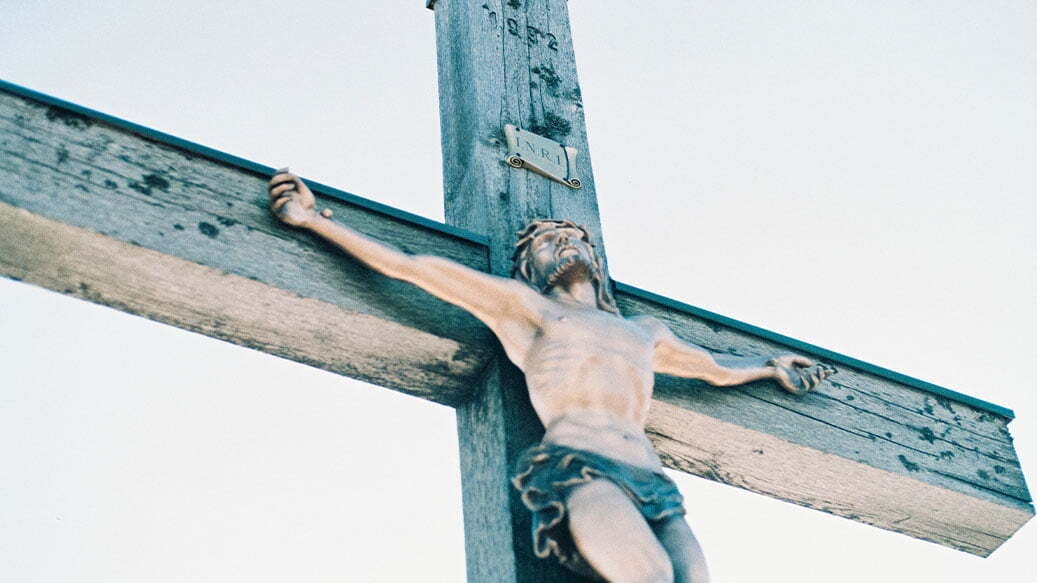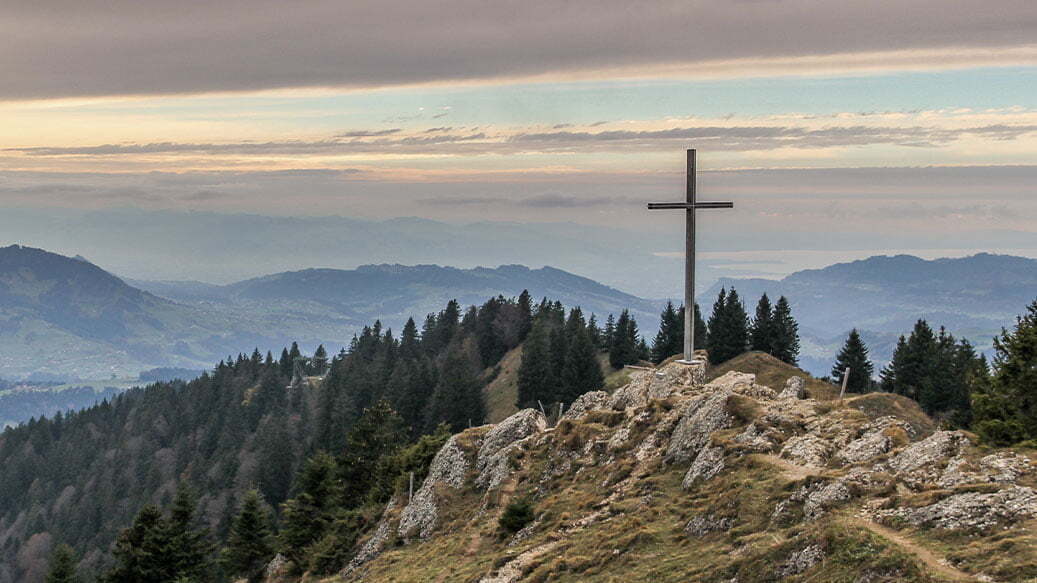
The 11th station of the cross is: Criminals speak to Jesus. Our reading today is from the book of Luke, chapter 23:
Luke 23:32 Two others, who were criminals, were led away to be put to death with him. 33 And when they came to the place that is called The Skull, there they crucified him, and the criminals, one on his right and one on his left. 34 And Jesus said, “Father, forgive them, for they know not what they do.” And they cast lots to divide his garments. 35 And the people stood by, watching, but the rulers scoffed at him, saying, “He saved others; let him save himself, if he is the Christ of God, his Chosen One!” 36 The soldiers also mocked him, coming up and offering him sour wine 37 and saying, “If you are the King of the Jews, save yourself!” 38 There was also an inscription over him, “This is the King of the Jews.” 39 One of the criminals who were hanged railed at him, saying, “Are you not the Christ? Save yourself and us!” 40 But the other rebuked him, saying, “Do you not fear God, since you are under the same sentence of condemnation? 41 And we indeed justly, for we are receiving the due reward of our deeds; but this man has done nothing wrong.” 42 And he said, “Jesus, remember me when you come into your kingdom.” 43 And he said to him, “Truly, I say to you, today you will be with me in paradise.”
In considering the thieves on the cross on either side of Jesus, we must place ourselves there. We don’t imagine ourselves there. We don’t understand the death sentence over our lives as tied to something we have done. How could we be thieves?
As we consider our lives, we often see more of what’s been done to us, but we don’t imagine having done anything wrong. We don’t see ourselves as thieves. In short, we don’t see our sin. However, if we could be honest, the cross and its existence is the greatest testimony to our sin. There’s no need for the cross if there is no sin, but yet it exists.
The two thieves also represent the choice we make regarding the Gospel. Two men who know they are dying have different responses to Jesus. One mocks Jesus, while the other humbles himself before Jesus and the outcome is much different because this thief knows that paradise is next for him.
In the end, this is our story. We are dying, a little more every day. We can call out to the blameless one and ask if He would remember us, though we rightly deserve death. What we learn is that it’s never too late and there’s nothing we could have ever done to cause Jesus to deny our request.
Yes, we are thieves, but He is a Savior. It is by His love and mercy that the Savior makes us thieves no more.


